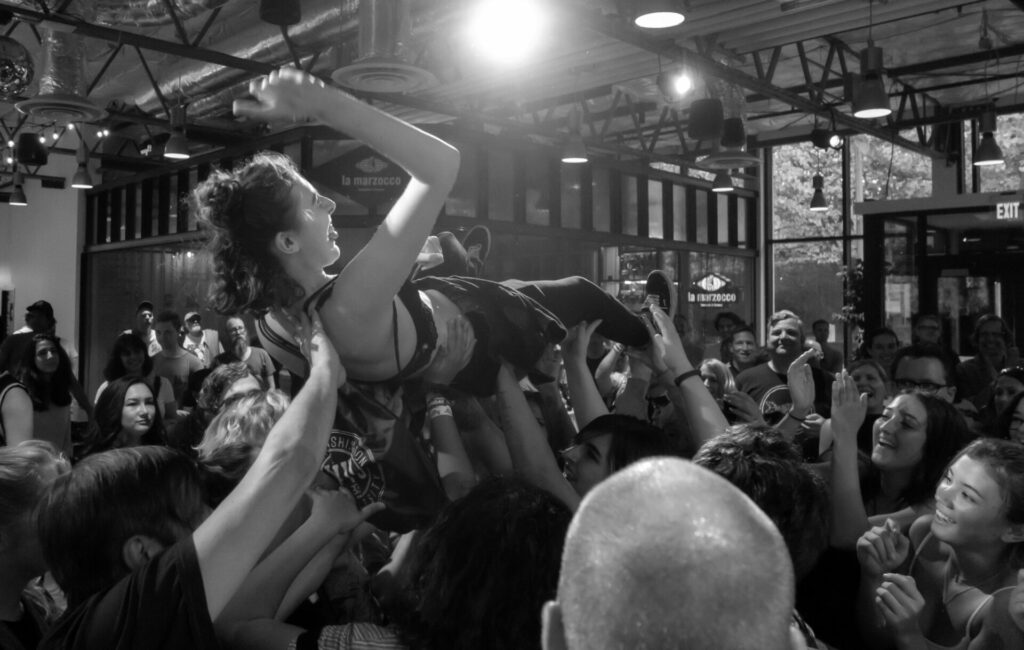Music Venue Trust’s 2022 report highlights urgent need for action
The MVT is calling for help from the government and wider music industry
By Joe Goggins

The Music Venue Trust (MVT), which represents almost 1000 grassroots venues in the UK, has delivered its annual report for 2022.
Based on a survey of the 960 members of the Music Venue Alliance, the MVT claims that the report demonstrates the value of grassroots venues to the UK economy, and that it also shows that the situation for the sector remains precarious as it moves into a post-pandemic world.
The venues surveyed, which between them employ in excess of 30,000 people, were found to have put on 177,000 events in 2022, with 565,000 individual performances, attracting audience visits of almost 22 million. However, this represents a 16.7% decline from the last full pre-pandemic year, 2019, with venues forced to make cutbacks to ensure that they could continue to trade.
Overall, those events brought in more than £500 million, but despite this, the average profit margin for venues was just 0.2%. This means that, in effect, venues subsidised live performance in the UK last year to the tune of £79 million. Accordingly, the MVT is calling upon the government and the wider music industry to increase support to the live sector, which it says is “now past the tipping point.”
“Obviously we are pleased to highlight the fact that grassroots music venues contribute over half a billion pounds to the UK economy and to emphasise their enormous impact on the cultural life of our country,” said MVT CEO Mark Davyd in response to the report. “But it is also necessary to reiterate the precarious financial position that much of the sector still finds themselves in – the current economics no longer stack up.”
Specifically, the MVT is urging the government to review the VAT applied to venue ticket sales, something it says is “crushing the economic viability of this sector and reducing the ability of the grassroots to create new British talent.” It also implores them to look at “excessive and anti-competitive” business rates for venues, which are the result of a “completely broken” assessment system and are a fundamental part of the financial pressure venues face.
“It doesn’t make any sense for the government to continue to tax what is clearly research and development,” explained Davyd. “We don’t penalise any other industry like this and we need to stop putting barriers in the way of risk taking and investment in new British talent. The spiralling cost of energy bills, rents, excessive & anti-competitive business rates, and other overheads, combined with the effects that the cost of living crisis is having on the disposable income of our audiences, means that venues are operating on razor thin margins and in many cases struggling to survive.”
A further MVT demand in response to the report is that large venues help to support the grassroots by investing a percentage of revenue from every ticket sold to the independent venue eco-system. They have flagged up the new Co-Op Live arena in Manchester as a case in point; purpose-built for music, when it opens in the shadow of Manchester City’s Etihad Stadium this summer it will become the largest arena in the UK, with a capacity of 23,500.
The MVT has issued a plea to Manchester mayor Andy Burnham, Manchester City Council and all Manchester MPs to ensure that Co-Op Live agrees to take part in the proposed initiative. “We cannot go on building more and more arenas with no plan of how to fill the stages they create in five, ten or twenty years’ time,” said Davyd, “and without these new facilities playing their part in helping protect the grassroots eco-system. The threat is real: we need more from the music industry and we need it now, otherwise what is currently a crisis will soon become a terminal decline for venues, their staff, artists and audiences.”
You can read the MVT’s report in full here.
